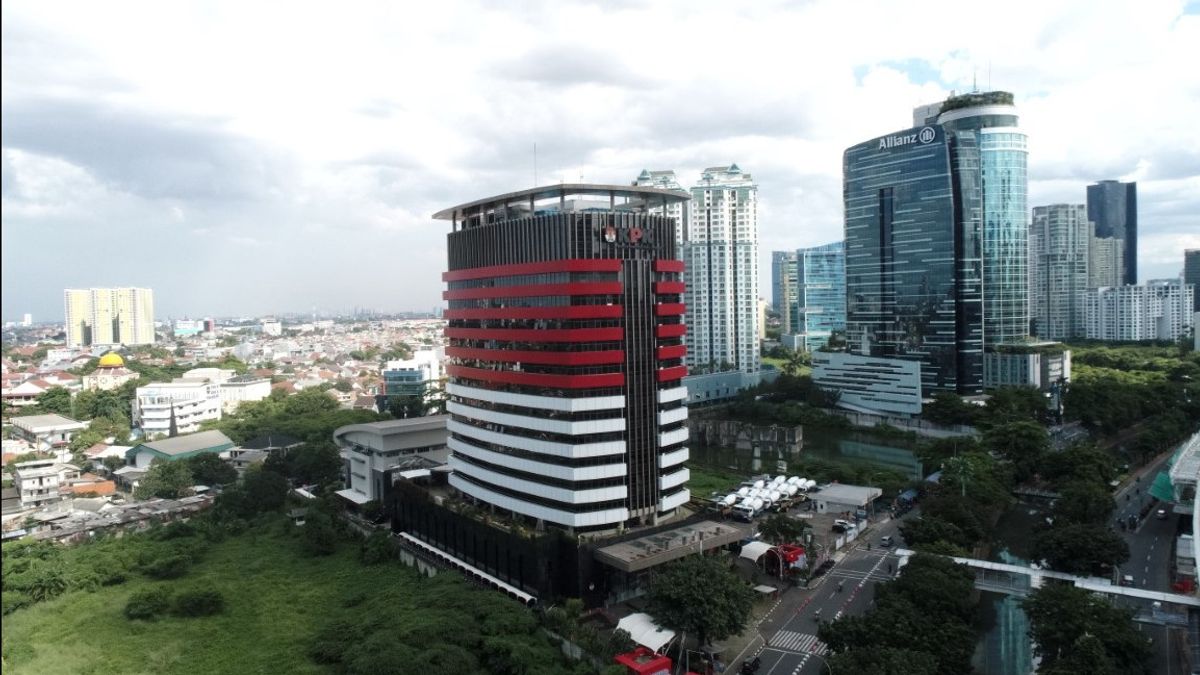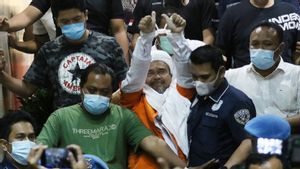JAKARTA - As many as 75 employees of the Corruption Eradication Commission (KPK) reported their leadership to the Ombudsman for alleged maladministration. This complaint is the aftermath of the implementation of the National Insight Assessment (TWK) which was held as a condition for transferring employment status.
After reporting the leadership, the KPK Director of Inter-Commission and Agency Network Development (PJKAKI), Sujarnarko, said that the entire implementation of TWK was full of maladministration. This is based on a review of 75 employees who did not meet the requirements (TMS) in the test.
"Today I represent 75 employees making official reports related to the TWK process carried out by the KPK," said Sujanarko at the Ombudsman Building, Wednesday, May 19.
There are six allegations of maladministration that were allegedly committed by the KPK leadership in the process of transferring the employment status. Among other things, related to the issuance of a Certificate on the Results of the National Insights Test (TWK) which led to the deactivation of 75 employees who did not meet the requirements until the employee interview session.
"From our study, there are a lot of maladministrations," he said.
Sujanarko said that his party wanted the Ombudsman to complete the reporting process against the KPK leadership so that it would not drag on.
Furthermore, he also spoke about why 75 employees refused to be dismissed from their jobs. Apart from being baseless, Sujanarko said there were a number of disadvantages with the dismissal of him and dozens of other KPK employees, including Novel Baswedan.
First, he considers that the deactivation process is also detrimental to the state. Because, they are not allowed to work but still get rights such as a salary.
"The public also needs to know, by paying 75 employees without being allowed to work, it is tantamount to detrimental to state finances. For what reason? We all are paid from taxes paid by the government," said Sujanarko.
"Imagine later if it is deactivated for up to one year, it is inactive for up to three months, how much money the state has lost by the leadership," he added.
The second disadvantage is that by deactivating dozens of employees, the eradication of corruption will not be maximized. Including, in handling corruption and this is certainly detrimental to the public.
"With 75 employees being disabled, all of the cases handled stagnate. So it's not just cases, there are those who work in international cooperation, some work in the HR bureau, the law firm, all of them stagnate. If not stagnate, at least it will be disturbed by the inactivity of 75 employees," he explained.
After receiving a report regarding the alleged maladministration in the National Insight Test, Ombudsman Chairman Mokh Najih promised to follow up. He also ensured that the follow-up would be carried out in accordance with the procedures and authorities possessed by his institution.
"So we will certainly explore according to the procedures and authority possessed by the Ombudsman. Later we will take steps. What important is how this process can be completed properly," said Najih.
He hopes that this problem can be resolved properly and get the best solution. So, there will be no more commotion related to this TWK.
Even so, he has not explained further whether the KPK leadership will be summoned to be investigated regarding this maladministration. Because the examination will later be handled by the Main Assistant Field VI.
Meanwhile, for this reporting process, he is also not sure whether it can be done within the next 1-2 days. "We will investigate it first because all reports have a mechanism in our process. Because we also do not know the details of the contents of the report regarding the parties we need to examine," he said.
Previously, these employees had also reported their leadership to the KPK Supervisory Board. There are three reasons why this complaint was made, one of which is about honesty.
SEE ALSO:
"In various socialization, the KPK leadership said that there was no consequence from the National Insight Test, and we also think that assessment is not something that can be passed and can't be passed," said the Head of the KPK Internal Learning Task Force Hotman Tambunan as a representative of 75 employees, in Jakarta, last Tuesday.
The process of changing the status to state civil apparatus (ASN) is the right of KPK employees who will determine the future, so it is only natural that the information provided to employees is correct information. The second reason is the question of the interview test material in the TWK which is odd.
"The second is that we report the leadership to the supervisory board, because this also concerns a matter of concern for us to our daughters, to our sisters and brothers. We do not want state institutions to be used to do things that are indicated to be sexual harassment in the context of interview tests like this," he also said.
The last reason, said Hotman, was related to the KPK leadership who took arbitrary decisions even though the Constitutional Court had decided that TWK would not give losses to employees.
"Isn't the Constitutional Court's decision a final and binding decision, why does the leadership not heed this decision, even issued a decision that is very detrimental to us," he concluded.
The English, Chinese, Japanese, Arabic, and French versions are automatically generated by the AI. So there may still be inaccuracies in translating, please always see Indonesian as our main language. (system supported by DigitalSiber.id)
















